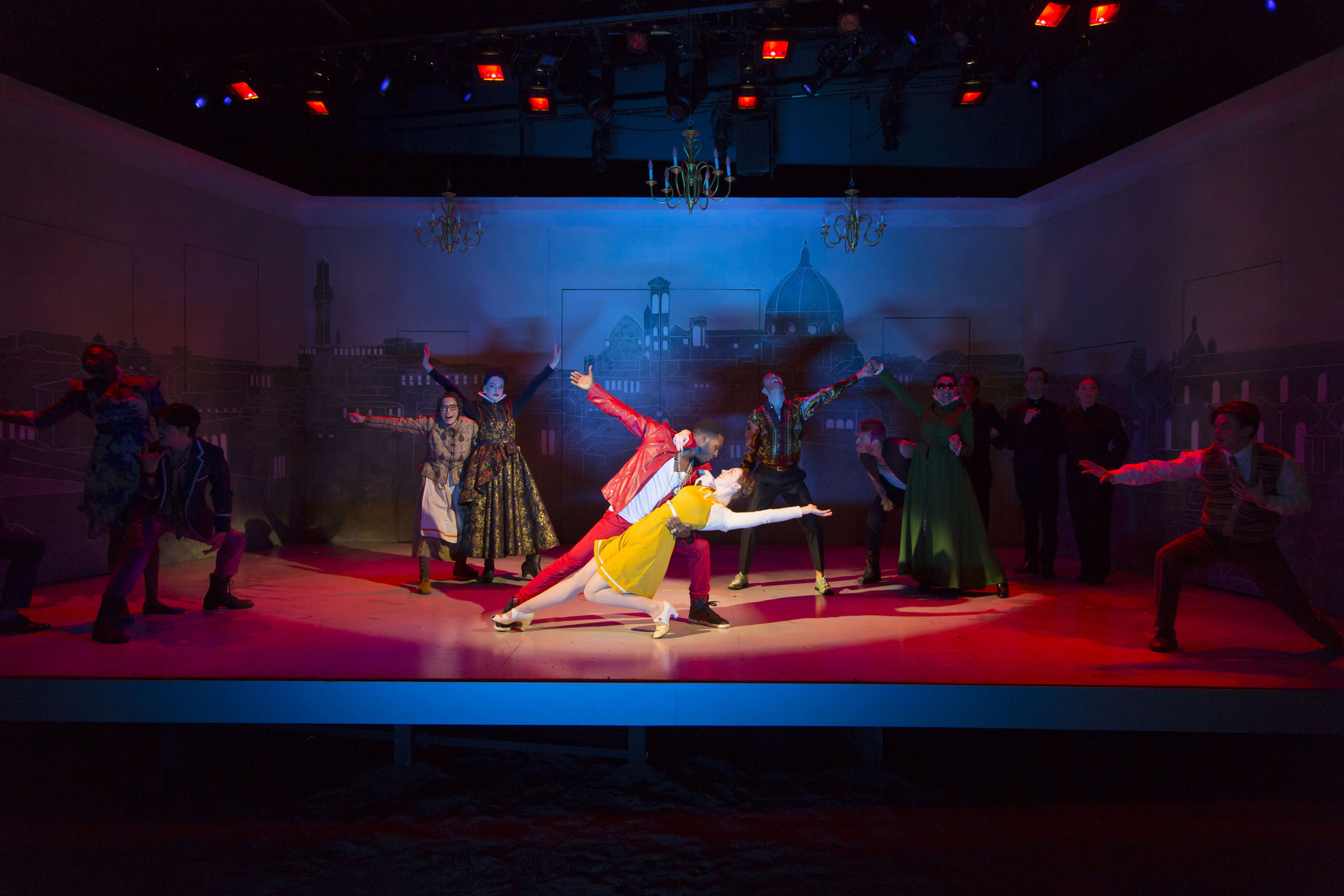
This week at the Iseman Theater, the Yale School of Drama presents yet another iteration of Howard Barker’s “Women Beware Women,” a reimagining of Thomas Middleton’s original Jacobean tragedy.
Featuring a cast of 12 drama school students and three extras, the play examines the complex intersection of power, sex and politics in 17th-century Britain. According to director Leora Morris DRA ’16, this production of “Women Beware Women” is unique in its presentation of an innovative feminist spin on Barker’s late-20th-century reinterpretation of the Middleton classic.
“[The play] is a ruthless examination of the many boxes we trap ourselves in, or find ourselves trapped in — and the examination of what it would take in order to gain liberation,” said Baize Buzan DRA ’17, who acts in the show. “I think, particularly in a beautiful and somewhat sheltered environment like Yale, this play asks its audience to bravely and more deeply question the underbelly of the world around them. Where does the dark, the ugly, the utterly ravenous live — not only in the dark alleys and corners of my mind, but also within the people and the world around me?”
Morris explained that, in its questioning of the “ordering value” of structures and systems such as government and democracy, the play’s storyline juxtaposes historical and modern values, noting that elements of the production seek to reflect this contrast. As Barker’s script did not contain stage directions, the play’s aesthetic was ultimately a combination of historical precedents and modern attitudes, Morris added. Working-class characters appear in blue jeans alongside regally dressed aristocrats. The script, based on Middleton’s original text, is littered with sexual euphemisms and unexpected references to pop culture. Other additions include a strobe-lit dance ensemble, as well as moments of rapping, beatboxing and singing.
In its second act, Morris said, “Women Beware Women” undergoes a fundamental shift in message, style and intensity, reflecting Barker’s updates to Middleton’s original work.
“[After intermission], Barker subverts a lot of our judgments about the characters in the first act and challenges us to re-evaluate them,” Morris noted.
In particular, Morris highlighted the sexual awakening of several of the play’s characters, which she said contributed to the societal critique present in Barker’s iteration of the play.
Nahuel Telleria DRA ’16, the show’s dramaturg, explained that Barker’s ending reflected the playwright’s ideas about Middleton’s original intentions.
“Barker, in the 1980s, wondered if Middleton wrote that ending only because he had to,” Telleria said, referring to the British government in power at the time of Middleton’s writing, as well as to the social expectation that sexual licentiousness would always be punished. “The themes of the play are modern, but the ending is unexpected.”
Cast members said they hoped the audience would leave the show with more questions than answers.
“Our director, Leora, would often talk about the fact that she wanted to leave the audience questioning what they saw,” Buzan said. “What is desire? What does it mean to be alive, to be awake? These are questions I would hope an audience member might entertain.”
The Iseman Theater is located at 1156 Chapel St.







